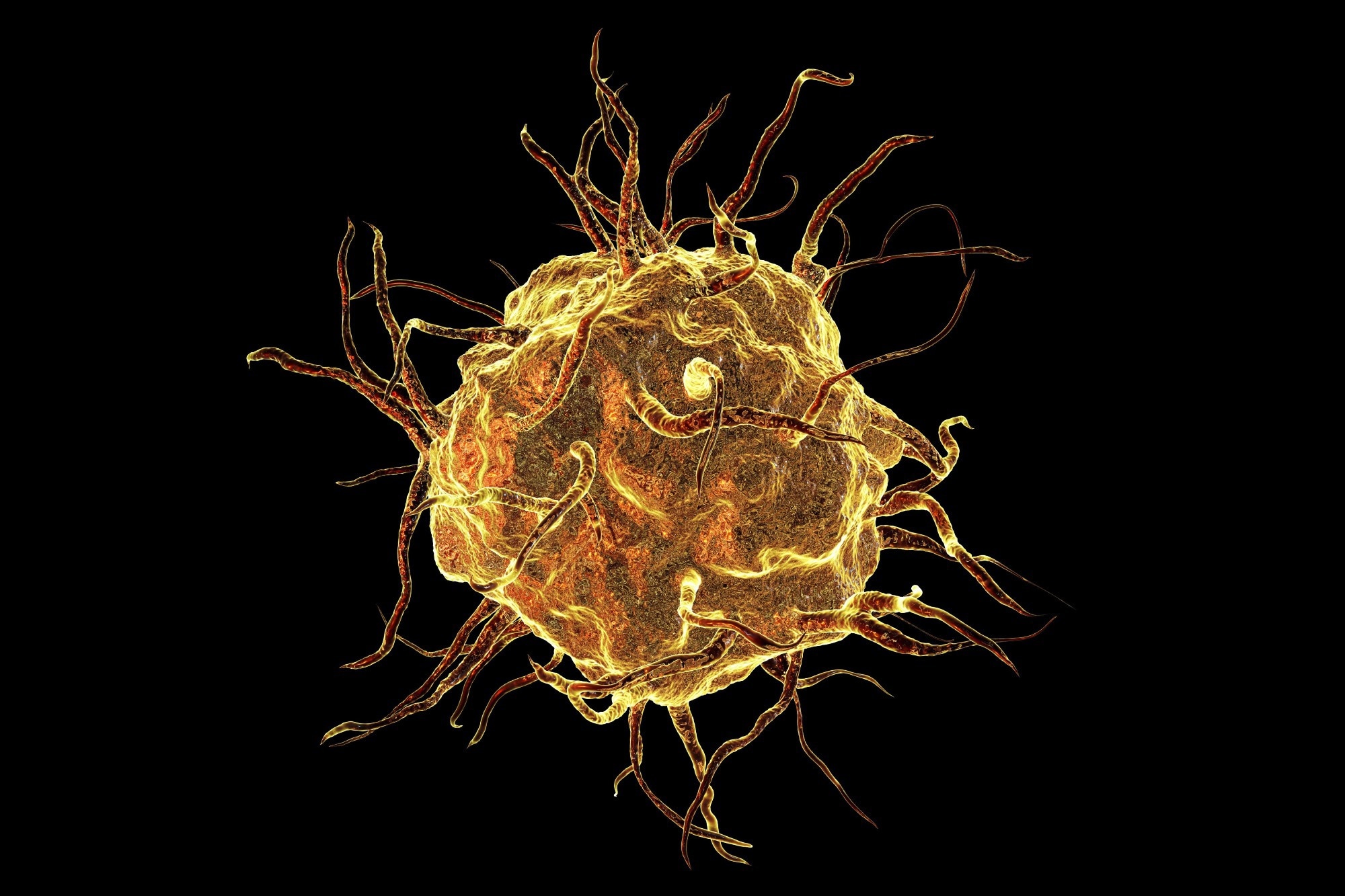A research team comprising members from MedUni Vienna and the FWF-sponsored Special Research Area SFB F83 Immunometabolism has made a groundbreaking discovery, highlighting the central role of macrophages in the regeneration of intestinal cells.
 Macrophage cell isolated on black background, monocyte, close-up view of immune cell, 3D illustration. Image Credit: Medical University Vienna.
Macrophage cell isolated on black background, monocyte, close-up view of immune cell, 3D illustration. Image Credit: Medical University Vienna.
This revelation provides insight into the intricate interaction between immune cells and tissue regeneration. Specifically, it has been observed that macrophages produce abundant quantities of the metabolites spermidine and spermine, which subsequently prove beneficial to other tissue cells within the organ.
Consequently, the tissue cells no longer have to synthesize these substances themselves, allowing them to perform their intended functions more effectively. This pioneering description of a "commensal metabolism" of macrophages was recently published in the journal Cell Metabolism.
The intestine plays a vital role in food digestion and nutrient absorption, and its integrity is upheld by a monolayer of epithelial cells, also known as surface cells. These cells undergo a complete turnover every four to seven days, a crucial process for shielding the body against microbial dangers, preserving intestinal function, and reducing the risk of diseases like inflammatory bowel disease and colon cancer.
Macrophages, immune cells in all organs, were the focus of the research led by Thomas Weichhart from MedUni Vienna's Center for Pathobiochemistry and Genetics and the coordinator of the SFB Immunometabolism. The study revealed that macrophages located in the colon are strategically positioned near intestinal epithelial cells.
The research team identified a critical mechanism through which these macrophages facilitate the proliferation of epithelial cells. This metabolic assistance proved to be particularly significant during phases of increased cell division stress, notably in cases of inflammation-related colitis.
We were able to show that macrophages produce large amounts of the polyamines spermidine and spermine via the mTORC1 signaling pathway.”
Stephanie Fritsch, Study First Author, Medical University Vienna
The epithelial cells absorbed these polyamines, causing a shift in their cellular metabolism, which, in turn, promoted their proliferation and bolstered their defense mechanisms. Notably, spermine had a significant stimulatory impact on the growth of colon cells.
Crucially, the activation of mTORC1 and the production of polyamines exhibited a protective effect against inflammatory bowel damage in animal models. Polyamines, particularly spermidine, have been extensively investigated over time, as studies indicate that these compounds can extend lifespan and decelerate the aging process.
Macrophages Support the Metabolism of Other Cells
This research marks a pivotal shift in comprehending the gut microenvironment. It marks the first time that macrophages are identified as "metabolic factories" that play a crucial role in aiding the metabolism of other cells, a process integral to the effective self-renewal of the intestinal epithelium. Furthermore, the study provides valuable insights into potential therapeutic targets for inflammatory bowel disease and other conditions linked to gut dysfunction.
Paving the Way for New Therapies for Tissue Regeneration and Intestinal Diseases
Thanks to the support of the FWF within the framework of this special research area, these findings have become possible.”
Thomas Weichhart, Center for Pathobiochemistry and Genetics, Medical University Vienna
The SFB F83 Immunometabolism, comprising research groups from Vienna and Graz, is dedicated to exploring the metabolic interplay between tissue cells and macrophages. The findings of this study present exciting prospects for future research.
Scientists can now explore the potential manipulation of macrophage-mediated metabolic support as a means to boost tissue regeneration and address intestinal disorders. Moreover, further inquiry into the functions of polyamines and mTORC1 signaling in immune cells may unveil innovative therapeutic strategies.
The results represent a significant step forward in our quest to better understand the gut and improve human health.”
Thomas Weichhart, Center for Pathobiochemistry and Genetics, Medical University Vienna
Source:
Journal reference:
Fritsch, S. D., et al. (2023). Metabolic support by macrophages sustains colonic epithelial homeostasis. Cell Metabolism. doi.org/10.1016/j.cmet.2023.09.010.